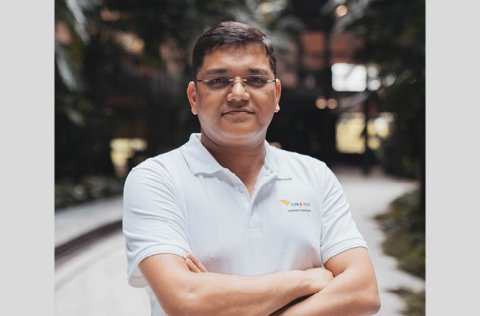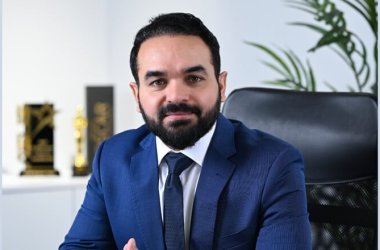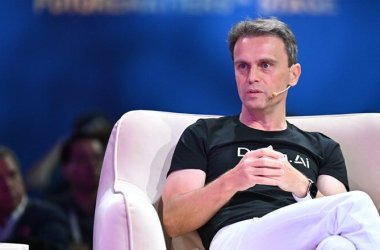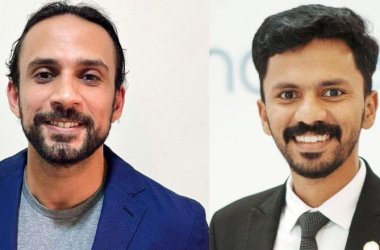CNME Editor Mark Forker, sat down with Avishek Kumar, CEO and co-founder of Singaporean-based deep tech company VFlowTech, to learn about the company’s expansion plans in the Middle East, and how its unique rugged, rigorous and innovative battery technology can meet the renewable energy demands and decarbonisation targets across the region.

Avishek Kumar, is the CEO and co-founder of deep tech company VFlowTech.
VFlowTech was established in 2018, and is headquartered in Singapore.
The company is on a mission to reinvent long duration energy storage with innovative technologies designed to develop affordable and scalable vanadium redox flow batteries.
Under Kumar’s fearless leadership and drive the company has enjoyed huge market success in Singapore, and now the plan is to replicate that success in the UAE, and across the Middle East region.
The United Arab Emirates is undoubtedly leading the region’s clean energy transition, whilst Saudi Arabia has also made no secret around its ambitions to decarbonise.
However, with grid instability on the rise, a surge in demand for infrastructure like AI-driven datacentres, which is energy intensive, achieving these decarbonisation targets is challenging.
VFlowTech enters the Middle East region off the back of a successful $20.5m funding round.
Kumar kickstarted the conversation by highlighting the impact VFlowTech has had in Singapore.
“I have a PhD in solar, and the fact of the matter is when solar became cheap, it became unsustainable, and it was evident that you needed batteries. We developed our technology in Singapore, and Singapore is our primary market. We’ve been able to successfully deploy our batteries in key use-cases – and we’re powering Singapore 24/7 with our battery technology, enabling really long durations and sowing a commercial fibre application on the grid,” said Kumar.
Kumar added that the company has a factory in India, and they are engaged in key projects in both the mining and utility industries.
Kumar highlighted that the ability of the battery to work in inclement weather conditions is a key market differentiator for them.
“One of the key advantages of our battery is that it can work in incredibly harsh and humid climates. Our battery can operate up to 55-degree ambient, which is a key USP for us as a technology player. Now, anyone that has been following the Middle East marketplace will be aware that the region has seen an unprecedented deployment of renewable energy. Saudi Arabia has announced its ambition to go net-zero, so the deployment of renewable energy is only going to soar and the demand is there. There is an abundance of solar energy, so you will need a lot of batteries, and there has been a big play into lithium-ion technology, but lithium-ion technology has its limitations. You need proper air-conditioning and cooling, so in a harsh climate like the Middle East, lithium-ion technology is limited,” said Kumar.
Kumar was quick to point out that VFlowTech has already enjoyed success in the Middle East marketplace.
“Last year, we entered into a partnership with a prominent local company that is looking to provide innovative energy storage solutions in desalination plants, and as we speak, we have our first battery in the KSA. A leading utility in the Middle East has put up a tender for flow batteries, and that is something that we are looking to participate in as well. We are happy that we have anchored many early opportunities in the Middle East,” said Kumar.
The conversation then shifted towards the industry verticals VFlowTech is targeting across the Middle East, and outside of renewable energy, utilities and net zero steel are both going to be a key area of focus for the company.
“There are 2-3 key industry verticals for us, but undoubtedly one of them is utilities, and utilities are going to need larger batteries. There have been a number of tenders put out for solar plus batteries which indicates growing demand. We are also looking at net zero steel and steel manufacturing and that’s a market where there is growing potential to have solar plus batteries deliver net zero power, so we believe there are a lot of opportunities in the steel manufacturing industry,” said Kumar.
The UAE Stargate project has been designed to help the country become a global leader in AI.
However, the sheer volume and scale of infrastructure required to power that project is off the scale, but again the datacentre space offers another opportunity for the battery technology produced by VFlowTech.
“We can deliver net zero power to datacentres, and again, this is a space we’re focusing on. Saudi Arabia’s NEOM project is being built up, but with NEOM there is a huge economy of clean energy, which will require batteries, and our batteries can deliver long-duration cycles. Our batteries can charge in the daytime when there’s an abundance of sun, anywhere from 8-10 hours, and then can be charged for 10-12 hours which makes the technology much more suitable for scale,” said Kumar.
Kumar added that they have plans to scale manufacturing locally using vanadium.
“We use vanadium, and vanadium is found in petroleum waste, and as we know the Middle East is rich in crude oil. We’re also exploring opportunities to partner with a number of local refineries, where we can use the petroleum Sinder to see if there is any vanadium content that we can recover, and that will make localisation possible as the demand rises,” said Kumar.
Kumar then highlighted a number of key differentiators that he believes makes vanadium redox flow batteries a much better option that lithium-ion batteries.
“There are multiple factors that contribute to vanadium redox flow batteries outperforming lithium-ion. Typically, a renewable energy plant has a lifetime of 25-30 years, and the lifetime cycle of flow batteries is also 30 years. Vanadium co-exists very effectively with renewable energy. From a safety perspective, there is a fire risk with lithium-ion batteries, and particularly when the temperature gets high the performance degrades significantly. Vanadium redox flow batteries are extremely safe, there is no risk of fire. One other key differentiator for us is performance. Lithium-ion is a good technology, but when it’s working in hot and inclement climate conditions then the performance plummets. Ultimately, lithium-ion is not suitable for the Middle East region because of the climate here, it is made possible through advanced cooling technologies, but our technology does not need that advanced cooling technology. In addition to this, 99% of the low component that we use is easily recyclable, and the Middle East doesn’t have a lot of lithium, so their local manufacturing content can be high vanadium, so these are all key enablers that make flow batteries more suitable for the Middle East marketplace,” said Kumar.
Kumar said the company has engaged in talks with some major players in the energy sector in the Middle East, but explained that with a new technology there always has to be the proof-of-concept phase – but outlined his plans over the next 12 months for their market expansion in the Middle East.
“We have entered into early discussions with a few large independent power producers (IPP) in the region, but these are huge, huge players in the energy industry, so for a new relatively new market entrant like us, we have to work on pilots and proof-of-concepts to put our best foot forward. We have been working with smaller players in Saudi Arabia, and as I mentioned earlier, a prominent utility company has put out tenders for flow batteries, which indicates that they are evaluating technologies. Our approach this year in relation to the Middle East will be to establish an office, somewhere in either Saudi Arabia, or Dubai, build a pipeline, and generally, be much more active in the market. Our initial focus is to first streamline manufacturing because we are a technology leader in this space, and we need to create a supply chain and evolve as a manufacturing company. This year, we are all about execution and once we open an office we can build a pipeline, and when the pipeline is built, we’ll explore manufacturing in the Middle East,” said Kumar.





